- Home
- Succulents
- Kalanchoe
- Kalanchoe daigremontiana
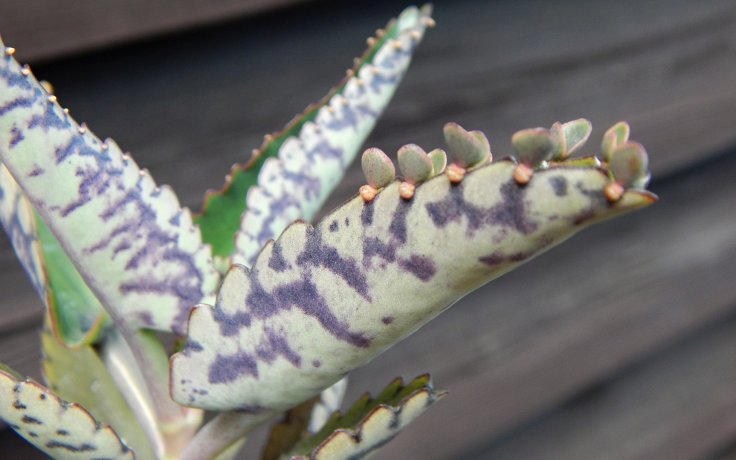
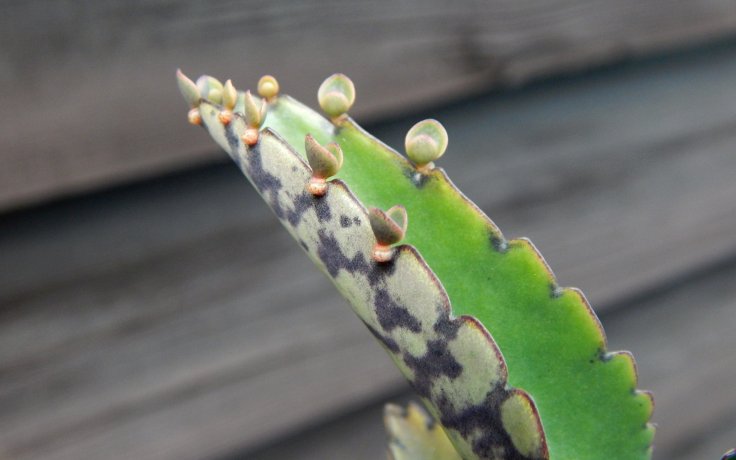
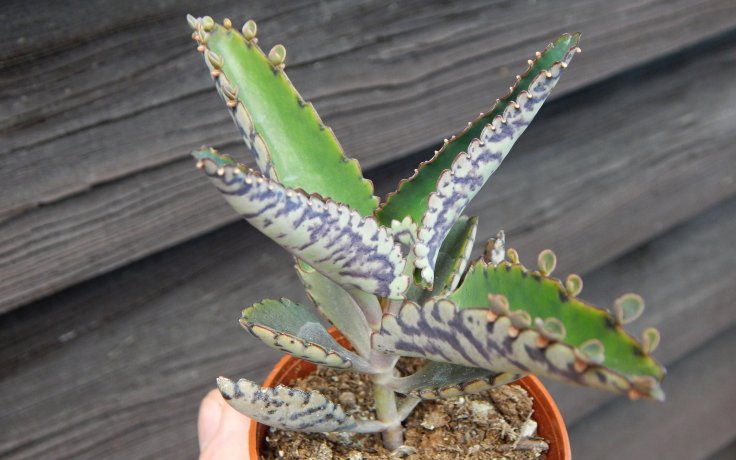
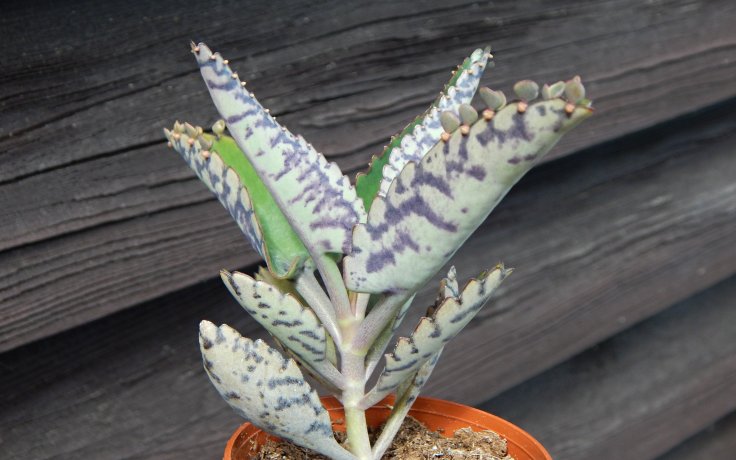
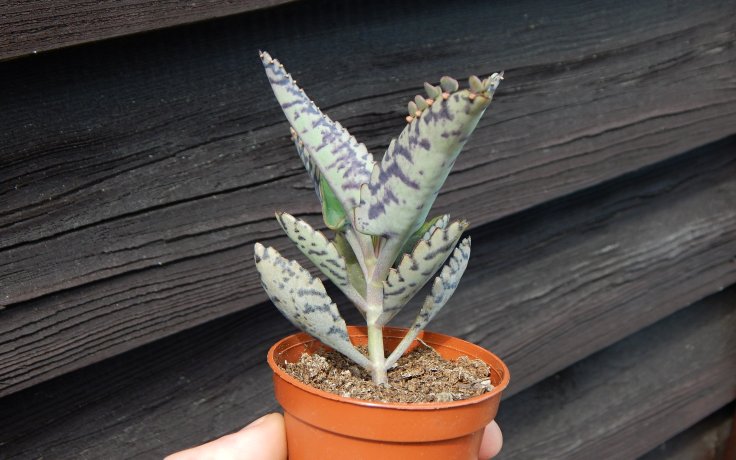
Kalanchoe daigremontiana
Succulent likes a sunny habitat.
Always water a few days after the substrate has dried out. In winter, limit watering.
It can withstand temperatures as low as -3.9 °C in the short term. However, the plant is not hardy.
It is called the Alligator Plant because of the crocodile patterning on the leaves. It is also known as Devil's Backbone or Mother of Thousands.
Kalanchoe daigremontiana is also known by the synonyms Bryophyllum daigremontianum, Devil's Backbone, Mother of Thousands and Alligator Plant. It is native to southwestern Madagascar, where it grows on sandstone and limestone in open forests in the Fiherenana River Valley and the Androhibolava Mountains. Since 1914 the epithet "daigremontiana" has been honoured by the Daigremont family, who were members of the French Botanical Society. It is often confused with similar species such as Kalanchoe laetivirens or Kalanchoe×houghtonii. However, there are certain characteristics that distinguish them. Daigremontiana has purple stripes on the underside of its leaves, while laetivirens has leaves that are completely green. Houghtonii, on the other hand, has narrower leaves.
The leaves are variable in colour, ranging from dark green and pinkish green to purplish green. The undersides of the leaves are mottled purple. The triangular to lance-shaped leaves with scalloped edges bear small plantlets on them, which are used for vegetative reproduction. The leaves themselves can grow up to 20 cm long and 3.5 cm wide and are attached to the stem by a petiole up to 5 cm long. The plant has brownish, unbranched stems. They can grow upright or semi-erect, up to 1 metre tall.
During winter, drooping, bell-shaped flowers with green or purplish calyxes and pink to lavender corollas appear.
Kalanchoe daigremontiana is quite variable as a species in terms of leaf size and shape and flower colour. The plant does not like fertilisation. This unpretentious and fast-growing succulent plant is easy to grow. The hardy crocodile plant delights with its patterning, vividness and flowers.